Depression is one of the most widespread and difficult to treat mental illnesses on the planet.
But finally, help is coming from a fungi with brain-friendly psychoactive properties – the so-called magic mushroom, or psilocybin – that has proven to provide long-lasting relief even for people with severe forms of depression.
And it’s coming just in the nick of time.
According to the World Health Organization, 264 million people suffer from depression in the world. In the United States, approximately 10 percent of the adult population has been diagnosed with major depressive disorder in the past 12 months. The National Institute of Mental Health reports that more than 17 million people in the U.S. have experienced major depression.
The Covid-19 pandemic has only made things worse.
Months of people experiencing fear of either getting or spreading the virus, coupled with job losses and entertainment venue closures, people being forced to accept working from home, and the end of many forms of social interaction, could all contribute to a wild burst of cases of depression not just in the U.S. but around the world.
History proves that overwhelming, uncontrollable events similar to the current pandemic can lead to greater numbers of people dealing with depression.
For example, in 2010, after the 2008 market crash and subsequent layoffs, there were 1.5 million more people treated for major depression than in 2005, according to the Journal of Clinical Psychiatry.
What’s more, the typical pharmaceutical options for treatment of depression, such as selective serotonin reuptake inhibitors (Prozac, Zoloft and Paxil), and tricyclic antidepressants (Norpramin, Tofranil and Pamelor), require daily administration and carry with them undesirable mental and physical side effects.
Psilocybin Therapy for Depression: Studies
Research using psilocybin therapy for treatment of depression is demonstrating that this natural psychedelic could be an effective remedy to help deal with depression. It can help people not just live with their depression, but even overcome it.
Studies are proving that psychedelic therapy can provide long-lasting help for patients with severe and, in some cases, untreatable depression. Researchers are discovering that patients can stay in total remission of their depression for at least four years – or longer.
A recent randomized clinical trial of 24 adult participants at the Center for Psychedelic and Consciousness Research at Johns Hopkins Bayview Medical Center in Baltimore, Maryland, found that psilocybin administered in the context of supportive psychotherapy produced “large, rapid, and sustained antidepressant effects.”
These effects were “approximately 2.5 times greater than the effect sizes found in psychotherapy alone, and more than four times greater than the effect sizes found in psychopharmacological depression treatment studies,” according to findings from the trial.
“This is not just a powerful treatment,” Alan Davis says, speaking at the Psychedelic 2020 Summit in September. Davis is the assistant professor of social work at Ohio State University, and an adjunct assistant professor in the Psychedelic Research Unit at Johns Hopkins University. He led a team of seven other researchers in the study. “But this psilocybin therapy blows other treatments out of the water.”
This was the first controlled study of psilocybin therapy in the broader population of major depression patients, Davis says.
Researchers recruited people with a long-term documented history of depression, most of whom experienced persisting symptoms for approximately two years before enrolling in the study. The average age of participants was 39; 16 of whom were women; and 22 identified themselves as white, one person identified as Asian and one person identified as African American.
How the Study was Conducted
Thirteen participants received the psilocybin treatment immediately after recruitment and after preparation sessions, and 11 participants received the same preparation and treatment after an eight-week delay.
Treatment consisted of two psilocybin doses given by two clinical monitors who provided guidance and reassurance.
The doses were given two weeks apart between August 2017 and April 2019 at the Johns Hopkins Bayview Medical Center Behavioral Biology Research Building.
Each treatment session lasted approximately five hours, with the participant lying on a couch wearing eyeshades and headphones that played music, in the presence of the monitors.
Findings from the study suggest that psilocybin may be effective in the much wider population of patients who suffer from major depression than previously appreciated.
Researchers in the study reported that the usual pharmacological drugs to treat depression have limited efficacy, and produce adverse effects: “Although many patients with depression showed reduced or remitted symptoms after treatment with existing pharmacotherapies, approximately 30 percent to 50 percent of patients did not respond fully and as many as 10 percent to 30 percent of patients were considered treatment-resistant.”
Results on PsilocybinTreatment for Depression
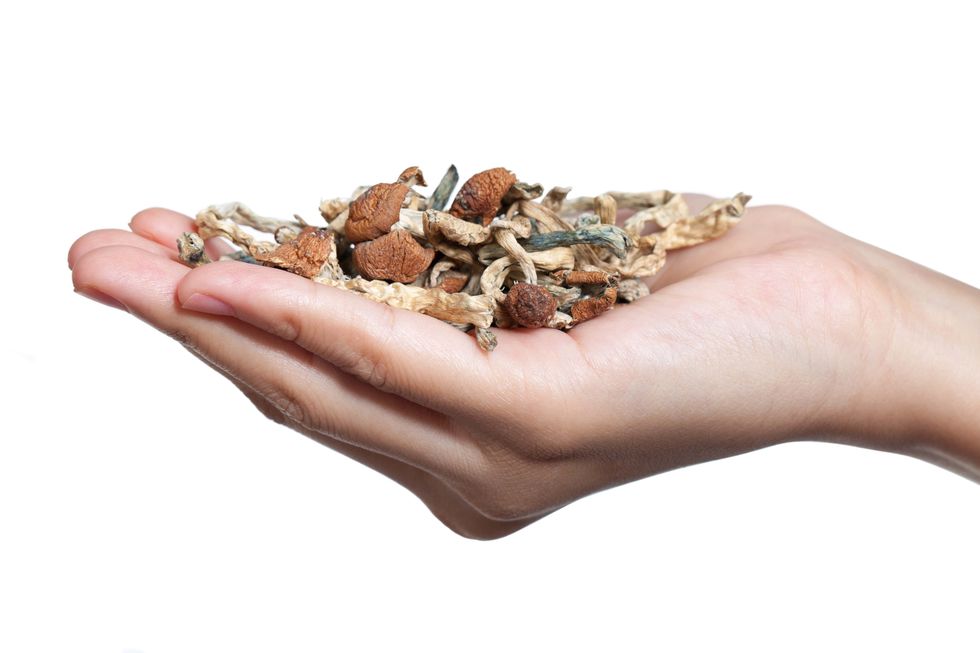
What the research team discovered is that the positive effects of psilocybin on depression lasted at least four weeks for most of the participants. Other than a few headaches, most participants reported no side effects from their doses.
Depression decreased immediately after the first psilocybin session, Davis says. “Depression reduced quickly and remained low.” What researchers saw was that anxiety was also reduced, and thoughts of suicide as well. They found that two-thirds of the group had, after just one week, a positive clinical response.
A total of 58 percent of participants were considered in complete remission for up to a year. “Keep in mind that these were people who on average had been depressed for decades with little or no help from traditional antidepressants or psychotherapy,” Davis says. “That psilocybin therapy produced such a strong change was exciting for them on a personal level. And for us on an investigative trial level.”
Researchers also found that the greater the intensity of the mystical experience that comes from psilocybin, the more the decrease in depression. “We found an even stronger relationship between psychological insight gained during the psychedelic experience and changes in depression,” he says. “The more intense they got – the awareness and realizations and discoveries about their life – correlated strongly with a decrease in depression.
“This tells us that mystical-type and psychological experiences were really robust, and that perhaps when they have these mystical and insight experiences, it could produce change in their traumatic experience or in the resolution of trauma.”
Regarding long-term outcomes, the drop in depression overall lasted up to 12 months. “Some relapsed. But as a whole, their depression was less,” Davis says. “Even if the depression came back, it came back to a less intense degree than it was before. There are certainly more studies that need to be done.”
Remarkable Improvements in Quality of Life
Matthew Johnson, professor of psychiatry and behavioral science at Johns Hopkins Medicine, who also worked on the study, says this period of remission from depression is really unprecedented.
“It was just astonishing,” he says. “It’s not the drug strength. It was the experience, what you went through, that had some relationship to these long term outcomes. We are in our infancy. We have a lot to figure out. This is a psychological intervention. It’s just not hitting neurons and treating symptoms. And that is the key here.”
Johnson, who is also the president of the International Society for Research on Psychedelics, an organization he founded with colleagues, also discussed his earlier work in psilocybin.
People reported remarkable improvements in mood and quality of life over a year after their sessions. “It wasn’t just them, but community observers, like spouses and friends that volunteered to provide responses about the participant in the study, who said that this person seems different.”
Another study he worked on was the first study to show that a laboratory experience actually changed a personality dimension. “The definition of personality is that it’s supposed to be stable. You may see changes over major life events, but certainly nothing that you can experimentally manipulate – until this finding,” Johnson says.
With psilocybin therapy, he says that researchers found an increase in openness, or a tolerance for other people’s views and thinking in a “both-and” rather than an “either-or” framework. Plus, an appreciation for aesthetics. “This was increased with psilocybin if you had the full mystical experience.”
More Proof of Long-Lasting, Helpful Effects
A follow- up related study about cancer and depression was conducted by Gabrielle Agin-Liebes, a clinical psychologist working on the clinical application of psilocybin therapy at Palo Alto University in early 2020. She discussed long-term follow-up research about cancer diagnosis and depression during the Psilocybin 2020 Summit. “Diagnosis of an illness like cancer can create extreme despair and existential distress,” she says.
Participants had done three sessions of psychotherapy and psilocybin in the parent study, and she tracked them in her follow-up report. “The outcomes appear to persist,” she says. “Three years to four-and-half years later, participants report that their anxiety reductions remain. Also their depression remission rates remained very high, at about 60-80 percent.”
All participants remarked on the persistent effects of the psilocybin therapy as either the single most or among the top five most important personal experiences of their life. Her follow-up study found that people continued to get better over time, and that the effects of the therapy got stronger.
Finding an Emotional Catharsis
Other papers Agin-Liebes worked on involved interviews of cancer patients with depression who describe an “emotional catharsis” after psilocybin therapy, with some reporting that they were able to come to terms with their cancer and find new meaning in their lives.
“There are some compelling theories about what is happening here,” she says. “What I find most interesting is the acceptance of the experience. Instead of trying to control their emotions, they let go and accept the experience.”
People also described a greater sense of themselves, she says.
Getting Psychedelics into Mainstream Medicine
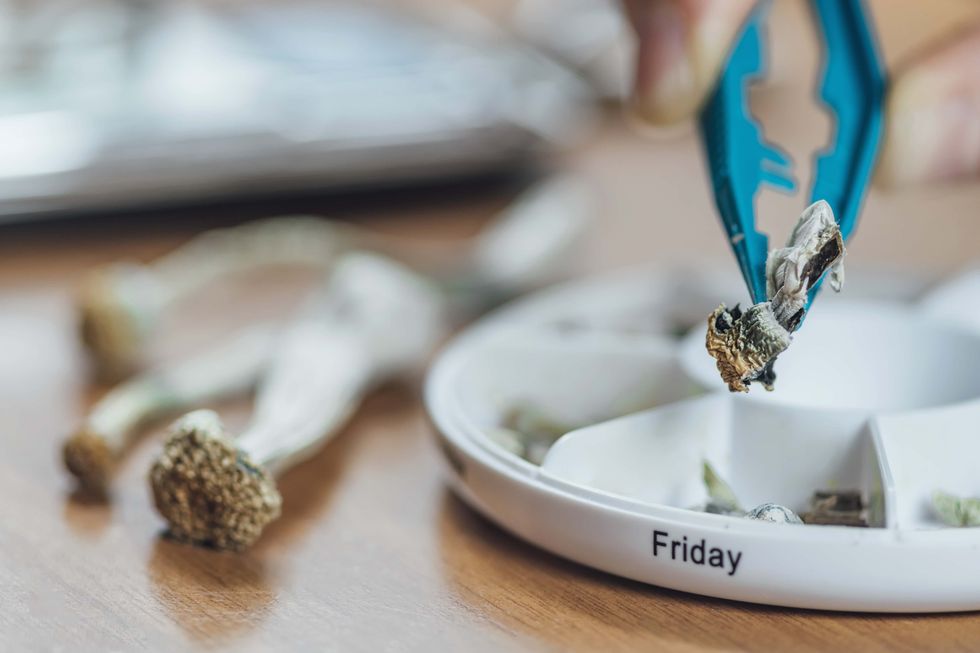
As these studies continue, there are new and novel methods of getting the experience of psilocybin therapy into the general population. One of those new ideas comes from PharmaTher Inc., a specialty life sciences company focused on the research and development of psychedelic pharmaceuticals for depression and pain.
The company recently announced the filing of a provisional patent application with the U.S. Patent and Trademark Office outlining the potential for novel combinations of psilocybin and U.S. Food and Drug Administration approved drugs to treat neurological disorders.
Another supplement product combines non-psychoactive psychedelic mushrooms with cannabinoids and terpenes to create various wake and sleep experiences.
There is more movement on legalization and/or decriminalization of psilocybin gaining traction across the U.S. and in other countries.
Getting psilocybin and other psychedelic medicines into the medical mainstream, and using them to work on something as profound and life-changing as managing or possibly even curing depression – psilocybin as a proven game-changer for treating depression has gained serious momentum.
The Future of Psychedelics Therapy
“This field is blowing up,” Johnson says. “Psychedelics therapy could be brought to bear on a lot of therapeutic behavior change. But we need some wisdom. Some say the medicalization is completely ridiculous. We would do best to avoid all of these extremes and evaluate efforts by their own merits by individual actors. It’s not just for hippies or new age-y folks.”
He says that he has seen too many grandmas benefit from taking psychedelics for depression which has made him a believer in its efficacy. “You name it, I have seen experiences where people have had dramatic positive transformations in their life that don’t fit the usual treatment model. This is not just for people that are into hippie culture. This is about meaning for human beings.”
Are you still missing out on The Bluntness newsletter? Sign Up today to stay in the loop.
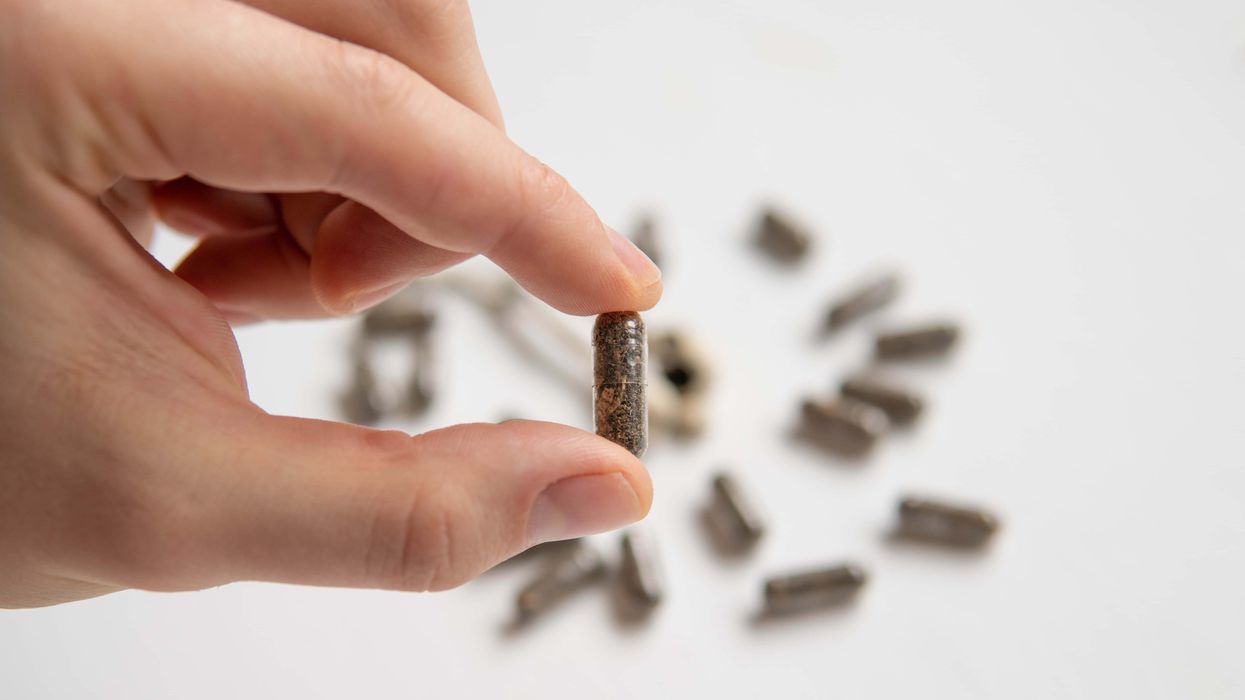













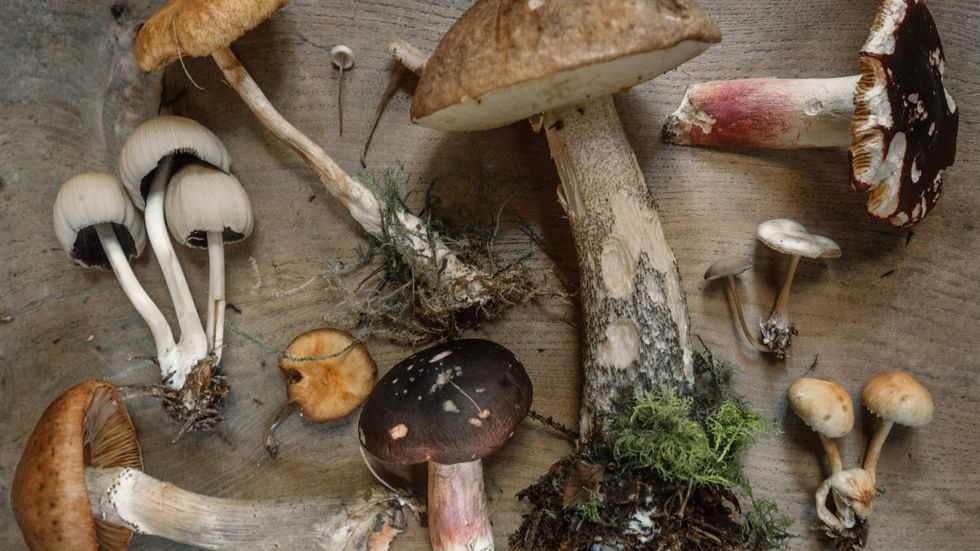 How Long Do Shrooms Last? Magic Mushroom Guide for Beginners - The Bluntness
How Long Do Shrooms Last? Magic Mushroom Guide for Beginners - The Bluntness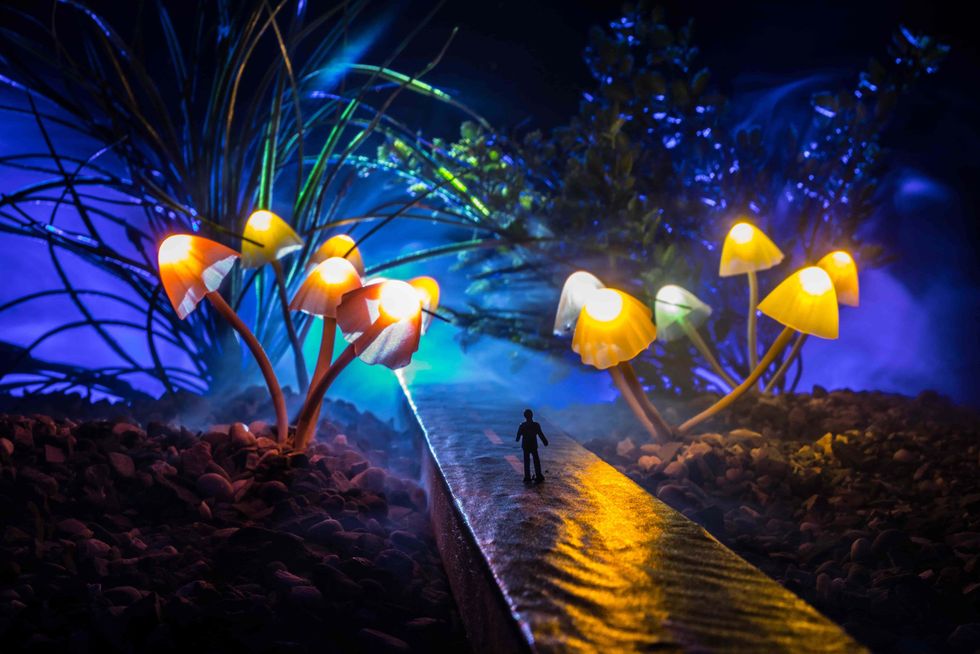 Psilocybin can provide a life-altering experience. -The Bluntness
null
Psilocybin can provide a life-altering experience. -The Bluntness
null
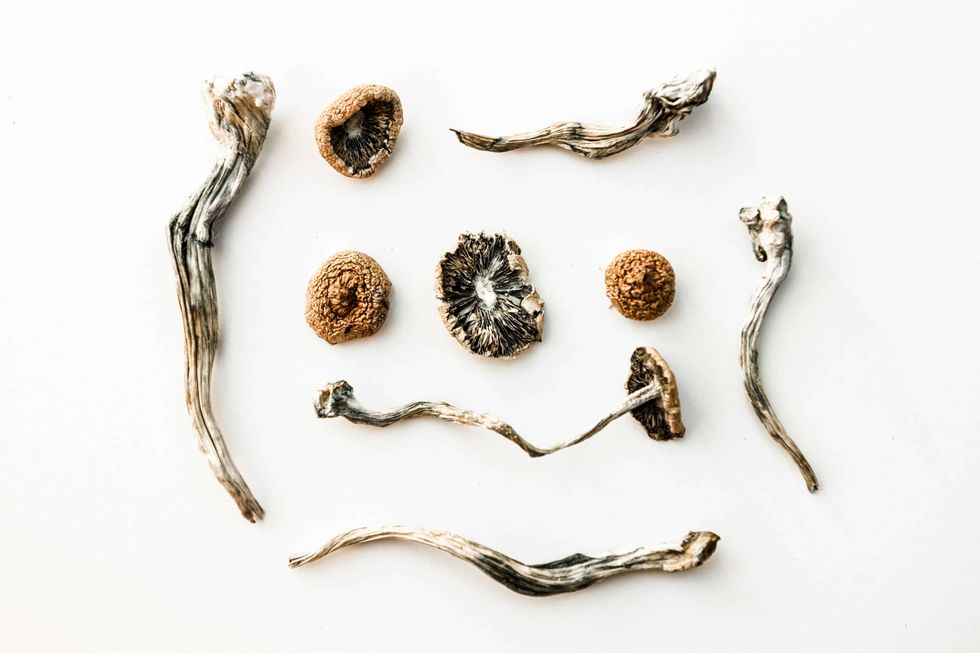 “Don’t diddle the dose. Once you have done your homework, go for it.” -- Terence McKenna
The Bluntness
“Don’t diddle the dose. Once you have done your homework, go for it.” -- Terence McKenna
The Bluntness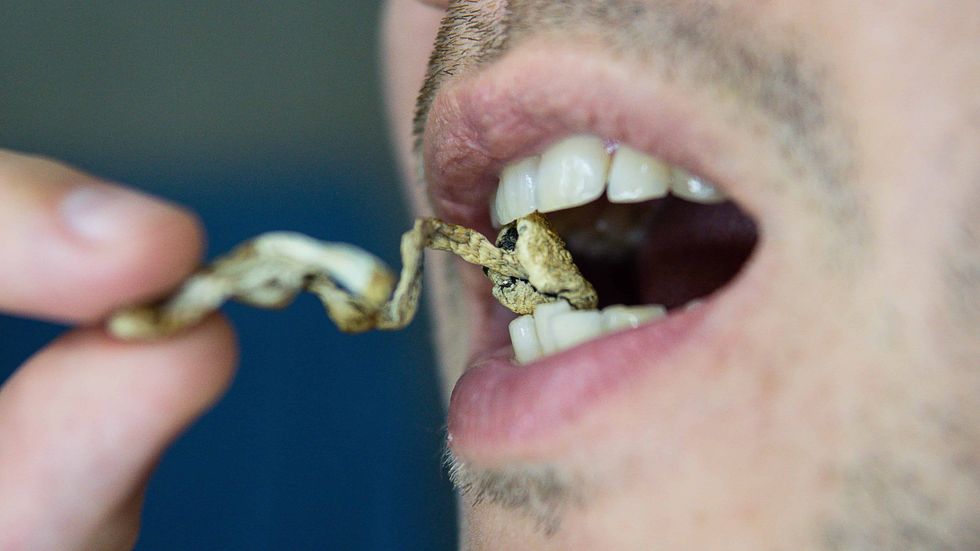 These mushrooms taste gross, but there are ways around that.The Bluntness
These mushrooms taste gross, but there are ways around that.The Bluntness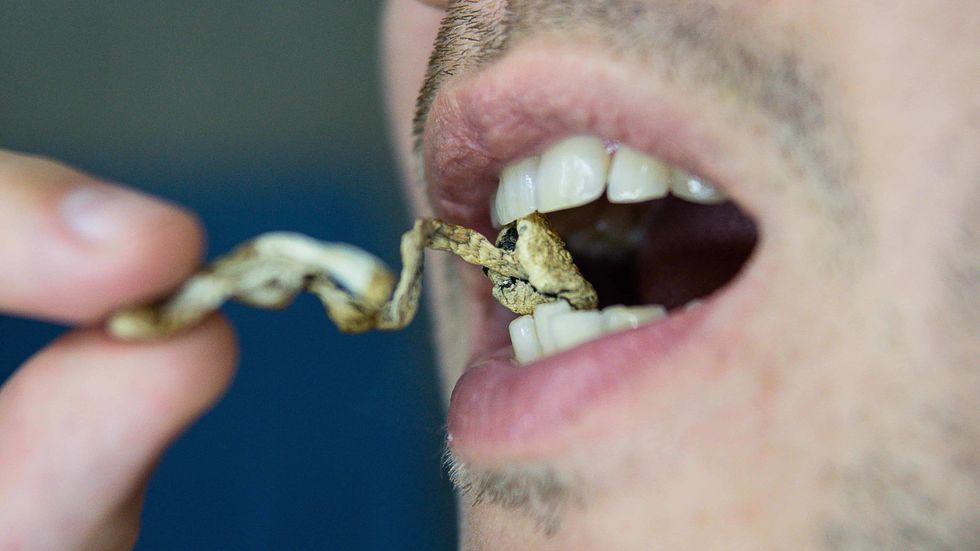 These mushrooms taste gross, but there are ways around that.
These mushrooms taste gross, but there are ways around that.


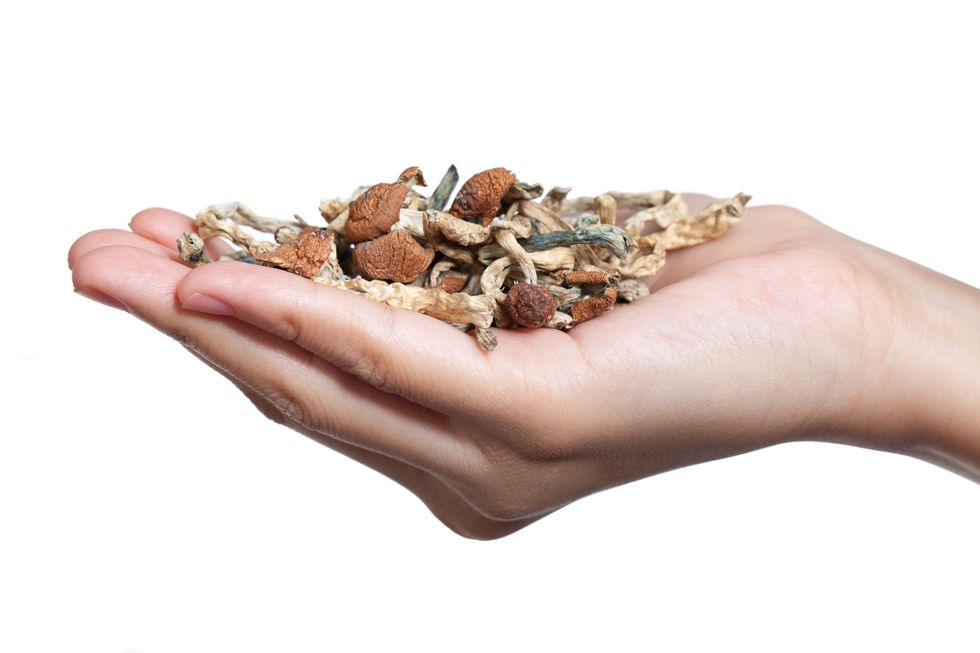 How to Make Mushroom Tea - The Bluntness
null
How to Make Mushroom Tea - The Bluntness
null
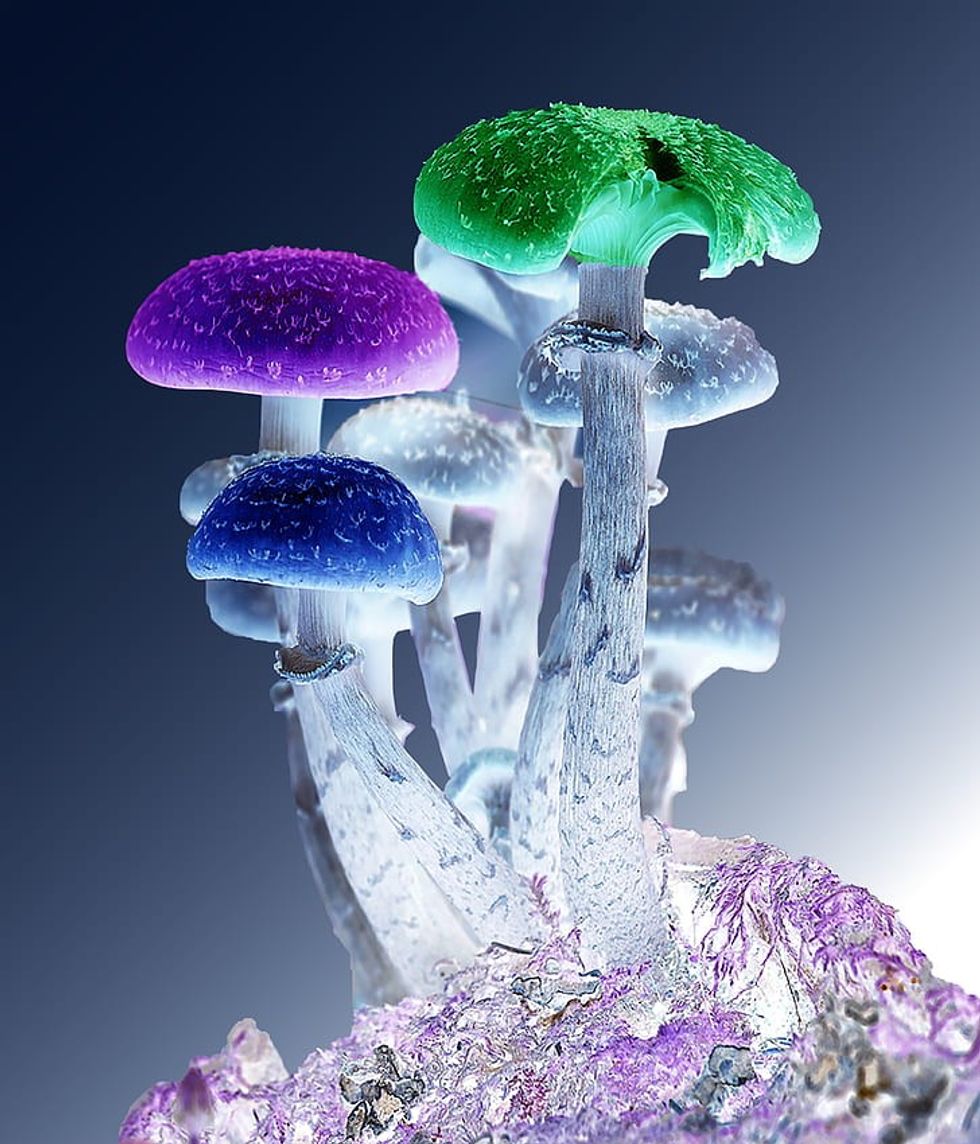 How to Make Mushroom Tea - The Bluntness
www.pickpik.com
How to Make Mushroom Tea - The Bluntness
www.pickpik.com